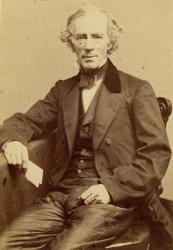Planning worship?
Check out our sister site, ZeteoSearch.org,
for 20+ additional resources related to your search.
- |
User Links
Search Results
I heard the robin singing
Author: William Newell Appears in 10 hymnals Used With Tune: FRANZ
I heard the robin singing
I heard the robin singing
Author: William Newell Hymnal: Worship and Song #49 (1913) Languages: English Tune Title: FRANZ
I heard the robin singing
I Heard the Robin Singing
Author: William Newell Hymnal: Worship and Song. (Rev. ed.) #58 (1921) Lyrics: 1 I heard the robin singing
His happy morning song;
I saw his happy helpmeet bringing
Their breakfast to the young;
And to me came a whisper,
In winds that fanned the trees;
‘If God for these so careth,
Will he not care for thee?’
2 I saw the roses growing
In beauty day by day;
No queen in all her glory,
So lovely in array.
And on their leaves were written
Sweet words of trust for me:
‘If God so clothed the roses,
Will he not care for thee?’
3 I thank thee, O my Father,
That ‘mid life’s toil and dust,
The birds and flow’rs can bring me
Such heav’nly hope and trust;
Quickened by faith they whisper
The Master’s word to me:
‘If God for these so careth,
Will he not care for thee?’ Tune Title: FRANZ
I Heard the Robin Singing
William Newell

1804 - 1881 Author of "I Heard the Robin Singing" in Worship and Song. (Rev. ed.) Rv William Newell DD USA 1804-1881. Born at Littleton, MA, son of a storekeeper, his family moved to Boston when he was a child. In 1814 he entered the Latin School, graduating four years later. He wrote a lengthy poem for his graduation exercise and was accepted into Harvard, receiving a BA in 1824. He taught for a year at the Latin School, then entered Harvard Divinity School, graduating in 1828. Professor Andrews Norton, who took a lasting interest in him, said his literary acumen was unequaled. He was much consulted by men of letters as a result. After college, he traveled for several months, then accepted a pastorate at the First Parish in Cambridge. In 1830 he was ordained. In 1832 a new church was built by the college across the street. He began ministry there just after a large minority of worshippers had left the church to organize the Shepard Congregational Society. Controversy in the parish between orthodox and liberal members was bitter, and the minority protested against Newell as pastor. He refused to engage in controversy and ignored all hostility. As a result of his gentleness, the quarrel soon passed into oblivion. In 1835 he married Francis Boott Wells, and they had six children: William, Frances, Robert, Kirk, Louise, and Jane. His domestic life was a happy one. Harvard conferred to him his DD degree in 1853. He remained as pastor of the First Parish until his retirement in 1868. His congregation was very diverse, consisting of academic people, retired ministers, and common folk. Somehow he managed to please most everybody through his simple and direct sermons. He wrote Bible commentaries and much verse, but never tried to publish it. He had come to Cambridge in delicate health, but managed to labor as he wished until the last year of his life, when he developed a painful illness. However, he remained cheerful and content. He died at Cambridge.
John Perry
===================
Newell, William, D.D., b. at Littleton, Mass., Feb. 25, 1804, educated at Harvard, entered the Unitarian Ministry in 1830, retired in 1868, and died in 1881. In Putnam's Singers and Songs, 1874, there are 11 of his hymns and poems. His "All hail, God's angel, Truth" (Thanksgiving), is in Horder's Worship Song, with Tunes, 1905.
--John Julian, Dictionary of Hymnology, New Supplement (1907)
William Newell
Robert Franz
1815 - 1892 Person Name: Robert Franz (1815-1892) Composer of "FRANZ" in Worship and Song. (Rev. ed.)
Robert Franz


 My Starred Hymns
My Starred Hymns

